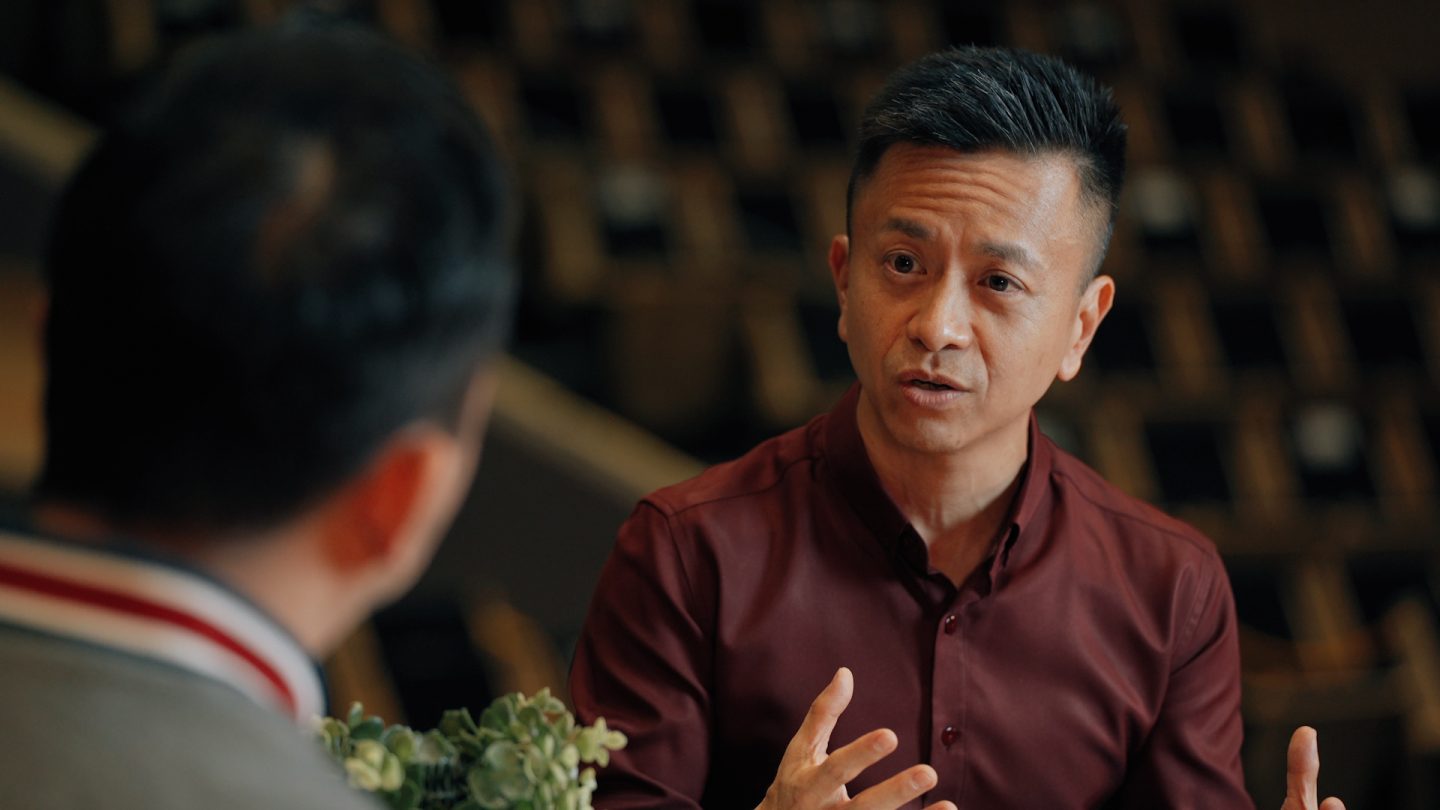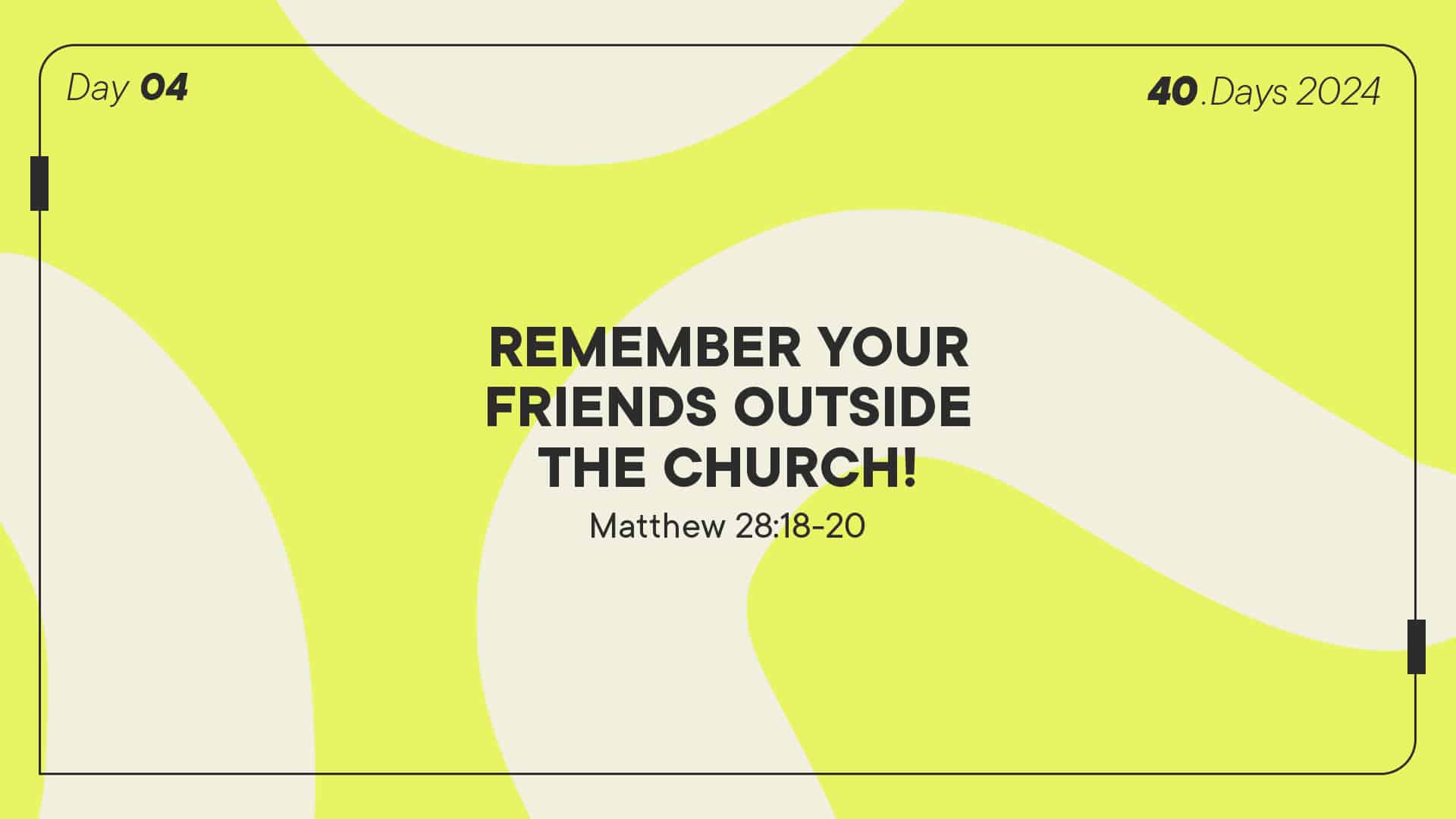“I went home and hugged my family”: 1 year later, Pastor Wilson Teo reflects on surviving COVID-19
A year after a COVID-19 cluster emerged in Grace Assembly of God, Senior Pastor Wilson Teo looks back on how he had to manage a churchwide crisis amid a personal crisis, isolated in the NCID ward.
by Pastor Edric Sng // February 20, 2021, 9:11 am

Ps Wilson Teo, SP of Grace Assembly of God, goes Face to Face with Salt&Light Editor Edric Sng.
Ps Wilson Teo checked into the NCID on Feb 11, 2020, where he was found to have COVID-19. He was discharged 10 days later, on Feb 20, 2020. This is the first in a 2-part series to mark one year since the case that made mainstream headlines. Click here to read the second part on how Ps Wilson sees churches can emerge stronger from the pandemic.
This article is presented in Ps Wilson’s own words from his Face to Face interview with Salt&Light Editor Edric Sng. Content has been edited for clarity and length.

February 11, 2020 was the day I went into the NCID with a slight fever.
I went in because one of my staff was definitely confirmed to be a COVID case, while a second one was a suspected case. I wasn’t well for a week with a fever that came and left and came back again.
I remember receiving a call somewhere Monday morning, where one of my staff was definitely confirmed to have COVID-19. And I said oh, wow, this sounds serious. By the second day, I realised that I wasn’t feeling well, and since I was a close contact of this staff, I decided to tell my wife on Tuesday.
On Feb 12, when the nurse came in fully covered with PPE, I knew something was wrong.
I had a fever. And it was a very strange fever. The fever would come, and then it would go, and then it would come, and it would go. One day I would be 37.0°C, the next day I would be 37.8°C to 37.9°C. And at a certain point in the day it would go up to 38.3°C to 38.4°C.
It was just quite a strange feeling. I definitely still had my sense of smell though. Food still tasted good. I didn’t lose my sense of taste or smell. It was just a fever; it was a very nagging fever.
So, I went into the NCID on Feb 11. When they knew that I was a close contact of a confirmed case, they didn’t ask any questions. They said I needed to stay in hospital. It wasn’t a choice.
I was warded on Feb 11, went in there and then had a swab test, did an X-ray. By the morning of Feb 12, the nurse came in fully covered with their Personal Protection Equipment and I knew something was wrong. I knew: Oh, wow, this looks serious.
Then doctors came in and spoke to me through a phone from outside the door. They broke the news to me. And I was shocked.
“Are you sure I am a confirmed case?” “Yes, you are a confirmed case.”
That was when everything started to pause for me.

I thought: Oh no.
The weekend before that, on Feb 8 – I did not have a fever then, but we had Grace Assembly of God’s 70th year anniversary event. It was a big deal in our church and we had some major gatherings. The prior Friday I had a leaders’ meeting.
Of course, when I came to church, I had felt well. So, when it was confirmed, many things went through my mind.
For example, those people that were in close contact with me – my family, staff, church members, especially over the weekend – all their faces and names just flashed through my mind, and I was suddenly very concerned. Oh no, oh no. So many things went through my mind.
I even asked myself: Will I survive this?
So many things went through my mind. I even asked myself: Will I survive this?
When I asked the doctors what would happen to me, they said they needed to do more tests to find out how serious the condition was. Throughout my stay there, my fever continued to go up and down, up and down.
I had daily swabs to see when I would return a double negative – two negative tests in a row.
My first nasal test was on Feb 11. That one took a little bit of getting used to! I never knew that a swab could go so far in! The first few days, I had quite a number of swabs. And when they swab you, it’s not just one nostril – they swab you on both sides.
In total I was swabbed 10 times. The first two, three times you need to get used to it. It’s like eating wasabi and there’s lots of wasabi rushing into your throat and your nostrils, that kind of feeling.
It’s a bit of discomfort; after that you’ll be fine. After a few days, I was used to the swab. You can even feel the right place to be swabbed. I was even able to tell the nurse okay, you’re there, you’re there.
I was isolated in NCID those 10 days. I was given Panadol to bring down the fever. There was a thermometer attached to my body they kept checking. On the third day, by Friday, my fever had stopped. It was good Panadol! I was surprised.
On Saturday, the doctor said my fever had come down to normal. The doctor was very reassuring – he told me, “It looks like you are on the path of recovery.”
 The first few days in NCID were very tough.
The first few days in NCID were very tough.
After I went in, I received news that a lot more of our church members and staff were also coming into NCID for their swab. Either because they were not well, or because they had been exposed to confirmed cases.
There was a lot of fear in the church. Because it was in so early a stage in the pandemic, we didn’t know a lot of information that we do now about the virus, like how it spreads.
In the hospital, I said: God, why? Why would this even happen to us?
So people who may have been seated very far away from me in church would also fear they had contracted the virus just because they were in church at the same time.
People were asking who the confirmed cases were, to find out whether they were near them.
A lot of fear, a lot of concern and a lot of anxiety. It was very tough.
I remember, in the hospital, I said: God, why? Why would this even happen to us?
When you see people you know coming into NCID for swab, you get concerned for them, because many of them have elderly family members. And then of course we received word that some members were not reacting well to the virus, and their lungs were not working well, and they went to the Intensive Care Unit.
We just thank God that there were no fatalities among those in our church. But at that point in time, you didn’t know whether there would be fatalities. You just didn’t know.

I had just been appointed Senior Pastor at the turn of the year. A month later, COVID hit us.
So I was going through a personal crisis, especially in the first few days when I knew I had it. My family was also going through a very challenging time because they had suspected that two of my family members were infected. And then I had a church crisis at the same time, where members were coming in by the dozens for swab tests.
I was trying to manage all of this from the NCID ward.
Every day I remember waking up, praying to God: Give me strength, God, to do this.
And of course, my next prayer would be, “Lord, I pray for good WiFi!” God, let me find WiFi, you know, because I was having crisis meetings with my leadership team, with my board, with my family, and with whoever needed to contact me. We were in crisis management mode.
I cried a lot. I cried because I just didn’t know what I needed to do.
It was a very difficult point in time because all the time we were trying to figure out what was going to happen next. I was just responding to phone calls, to emails, to text messages as they come. And then we hear of our members not doing well, in the hospital ward, their lungs, they couldn’t breathe. And you see the effect on families, on their spouses …
There was so much going on that the only time I was concerned about my own health was at the start, when I had the first conversation with the doctors. After that, it was crisis management mode.
There were a lot of emotions and feelings going through me. I cried a lot. I cried because I just didn’t know what I needed to do. And I was so concerned for my family members. At one time I was in NCID, my wife and second daughter were in KKH, while my eldest daughter and my youngest son were at home. We were at three locations because they wanted to isolate us and make sure that we didn’t pass the virus among ourselves.
In the end, my family members didn’t get it, even though I had been spending a lot of time with them. In the days before I found out I had COVID, I would hug them every day before they went to school, and we ate together, we had conversations together. By the grace of God, my family didn’t get it.

But the whole process was very trying. I cried a lot in the hospital ward.
I realised that I was under tremendous pressure. I didn’t have the luxury of time and space. I was just thrown into the crisis to lead the church through the crisis.
I remember waking up every day praying to God. I would take a shower, and I would make my shower a place of my prayer; I would go to the toilet and pray. I would say: “God, why? Why me? Why at this point in time, when I just took over the church? Why Grace Assembly? There’s so much that I need to do, God!”
I had to still myself before God and pray: “God give me strength to manage this.”
My tears could be triggered by thinking about my family, by a text from church members, by the fact that one of my members wasn’t doing well because of the virus, or hearing how my staff’s families were affected because of COVID.
I would cry over all of that. Suddenly, anything could trigger my tears. And I realised that I was going through trauma.
I had to still myself before God and pray: “God give me strength to manage this.”
Maybe because I could focus on the bigger crisis of the church and of my family members, maybe that helped distract me from my own condition. Every day, we were just trying to figure out who was coming into NCID – which family, which member. If we got to know that a member came in, we try our very best to encourage them and prepare them for what would be coming.

The doctors and nurses in the NCID – they’re just solid.
They were very encouraging, highly professional, very comforting. When I had my first negative result to a swab test on Feb 19, the doctors came and said: “Mr Teo, congratulations! You have the first negative! And let’s believe for the second one!”
The first thing I wanted to do was go back home and hug my family.
The next morning, I got the news that I had a second negative. I was discharged on Feb 20. In total, I was inside there for 10 days.
I remember, the first thing I wanted to do was go back home and hug my family. I hugged them, hugged every one of them. And after that, I went for a bak chor mee at a nearby hawker centre!
The funny thing when I was discharged, when I went back home, my family was under quarantine still. They couldn’t move around, but I could move. So I became the person who would buy them food.
My church members had been supporting them – they were buying food, buying groceries for my family. When I came back, I took over all that. I had to buy food for my family, do grocery shopping for my family.
But it was good to be back!
In Part 2 of this series, Ps Wilson shares about how churches in Singapore can emerge stronger from this pandemic.
“A spiritual leader must leave no brokenness unhealed”: Pastor Daniel Foo
We are an independent, non-profit organisation that relies on the generosity of our readers, such as yourself, to continue serving the kingdom. Every dollar donated goes directly back into our editorial coverage.
Would you consider partnering with us in our kingdom work by supporting us financially, either as a one-off donation, or a recurring pledge?
Support Salt&Light



